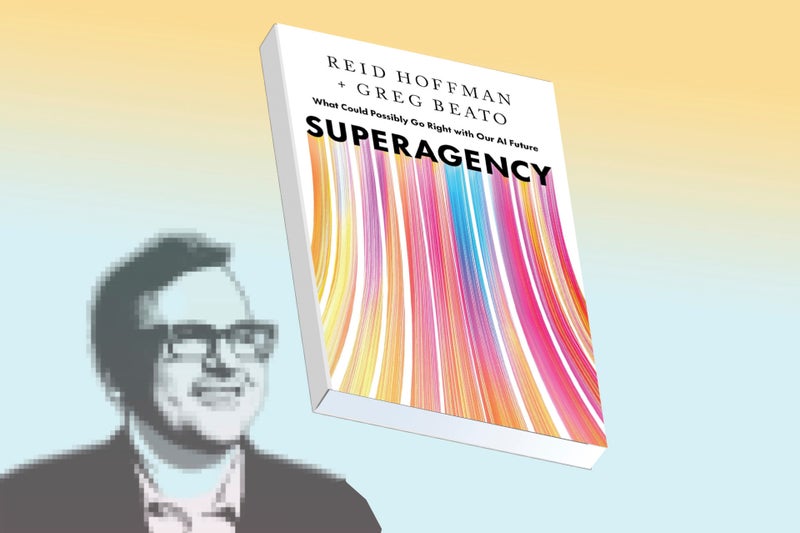Microsoft founder Bill Gates explores the making of his internal operating system in new memoir
Microsoft founder Bill Gates explores the making of his internal operating system in new memoir
Share:
With his 70th birthday looming on this year's horizon, Microsoft founder Bill Gates looked inward to open a window into the man behind Windows and other seminal software that turned the personal computer into a household staple. Gates focuses on the first quarter-century of his life in “Source Code: My Beginnings,” the opening installment in a retrospective trilogy about an insouciant, impertinent and often misunderstood kid who grew up to become a polarizing technology titan before morphing into an influential philanthropist.
In “Source Code,” Gates explores how his childhood quirks, upbringing, friendships and experiences coalesced into shaping his own internal operating system. Along the way, he dissects his brain's unusual wiring, delves into the emotional trauma of his best friend dying while they were both in high school, and revisits the birth of Traf-O-Data, a trailblazing startup that he launched in Albuquerque, New Mexico with another childhood friend, Paul Allen.
Traf-O-Data, conceived to create software for the groundbreaking Altair computer made Micro Instrumentation and Telemetry Systems, became Microsoft in 1975 — a year it booked $16,005 in revenue while Gates and Allen were making $9 per hour. By 1977, Microsoft had become successful enough to embolden Gates to drop out of Harvard University. In 1979, he had decided to move Microsoft to the Seattle area where he grew up. Although Gates stepped down as Microsoft's CEO 25 years ago, the Windows operating system and other software created under his reign remain the main pillar in a company that now generates $212 billion in annual revenue, boasts a $3.1 trillion market value, and accounts for most of Gates' $100 billion personal fortune.
“Source Code” ends with Gates's drive back to Seattle in 1979, meaning it doesn't touch upon his 1994 marriage to Melinda French, nor their 2021 divorce. “I am being reflective, which is not my normal mode, but it’s kind of time,” Gates said during an interview about the book with The Associated Press. “As we went back and got teacher’s comments or people I worked with at Harvard, it was fascinating. I had confused myself into thinking I got straight A’s in ninth grade.”.
That might not sound like much of a revelation, but it was a surprise to the cerebral Gates, who paints himself in the book as a “bratty smartass” prone to dismissively sneering, “That's the stupidest thing I ever heard,” about remarks that seemed nonsensical to him. Gate's self-portrait is that of a nerd nicknamed “Trey” by his card-playing grandmother because he was the third male on this father's side of the family to be named Bill. He was a pipsqueak who had difficulty making friends and preferred living in his own head before he discovered computers, which became like slot machines that rewarded him for writing elegant lines of code.
When he did talk, the young Gates rocked back and forth like a metronome setting a rhythm for his brain — a habit that surfaced during parts of his 45-minute interview with the AP. “It was a little weird because it was hard to direct my attention,” Gates recalled during the interview. “I had one year in school where they said, ‘Oh we should put you ahead a couple grades.’ And then another time, they said, ‘No, we should hold you back.’ And it’s like, ‘Well make up your mind.’ They were a little confounded.”.
Although he didn't realize it as a boy, Gates has no doubt he was and still is neurodivergent who channeled that anomaly into learning to program computers at the right time in the right place with the patient support of his late parents (the book is dedicated to them, along with his sister, Kristi and Libby). “It wasn’t until I was an adult that there was this idea that there are kids that have this kind of unique ability to concentrate but less social skills. I certainly would be included in that,” Gates said. “I encourage people who have strengths and deficits to kind of map their ambition onto something that plays to their strengths. Being able to think just about programming and how you do it better ended up being invaluable for me.”.
Gates also had the advantage of growing up in a family that could afford to pay for him to attend a private high school in Seattle. Still, that privilege didn't insulate him from the trauma he experienced when his best friend, Kent Evans, died in a mountain climbing accident in May 1972 — a year before they were going to graduate. Evans' death occurred while he and Gates were preparing to spend much of the summer working on a program for their school, but what hurt far more was the loss of someone who understood him and helped give him a sense of purpose for the first time in his life.






















